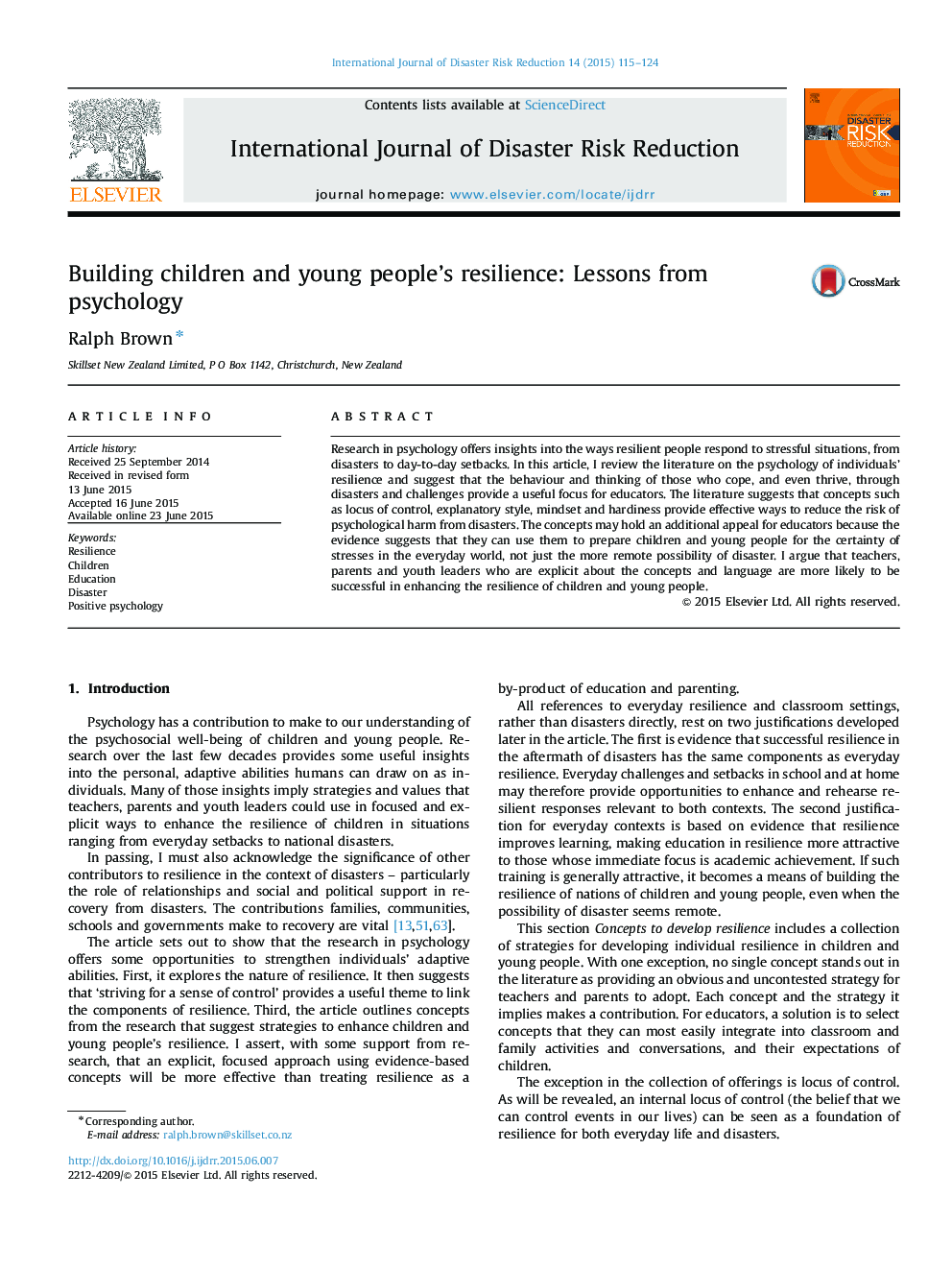| Article ID | Journal | Published Year | Pages | File Type |
|---|---|---|---|---|
| 1055215 | International Journal of Disaster Risk Reduction | 2015 | 10 Pages |
Research in psychology offers insights into the ways resilient people respond to stressful situations, from disasters to day-to-day setbacks. In this article, I review the literature on the psychology of individuals’ resilience and suggest that the behaviour and thinking of those who cope, and even thrive, through disasters and challenges provide a useful focus for educators. The literature suggests that concepts such as locus of control, explanatory style, mindset and hardiness provide effective ways to reduce the risk of psychological harm from disasters. The concepts may hold an additional appeal for educators because the evidence suggests that they can use them to prepare children and young people for the certainty of stresses in the everyday world, not just the more remote possibility of disaster. I argue that teachers, parents and youth leaders who are explicit about the concepts and language are more likely to be successful in enhancing the resilience of children and young people.
